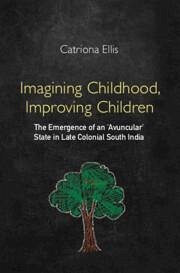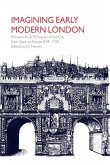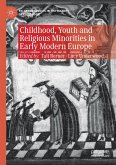"From as early as the 1920s, state policy towards children in south India was framed through the lens of a universal ideal of modern childhood. This reflected the participation of policymakers and civil society activists in global discourses of child saving and the new opportunities of governance under the constitutional reforms of 1919. Children became viewed as both objects to be saved and investments as future citizens. The book considers how adults used this concept of universal childhood to conceptualise themselves as both modern and avuncular, gaining authority through an appropriation of familial terms as well as the claim to modern, scientific expertise. Through a detailed study of education, health and juvenile justice, the book reveals that the implementation of policy was still informed by other markers of difference, and contrasts adult intentions with the autobiographical memories of school, family and peer relationships"--
Hinweis: Dieser Artikel kann nur an eine deutsche Lieferadresse ausgeliefert werden.
Hinweis: Dieser Artikel kann nur an eine deutsche Lieferadresse ausgeliefert werden.








